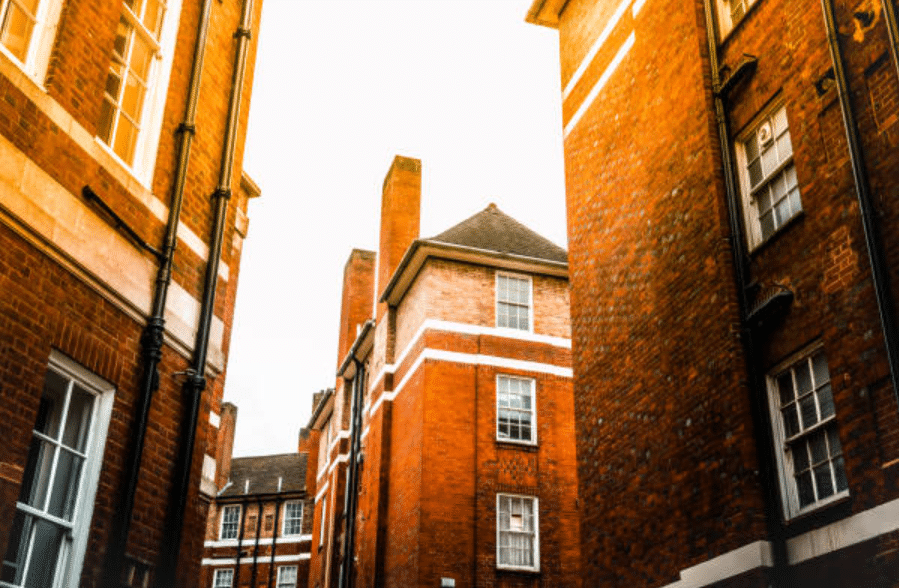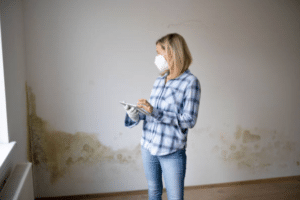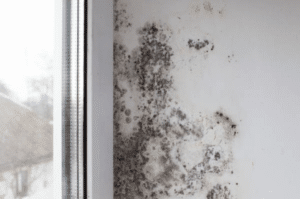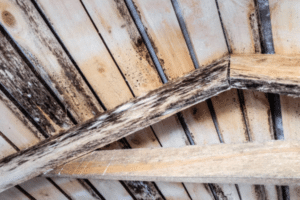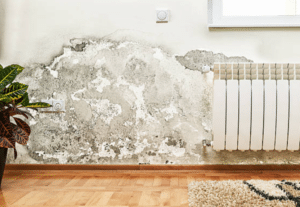As a council, it is your responsibility to provide safe and healthy living environments for your community.
Mould growth in council buildings poses significant health risks and can impact the well-being of residents. It is crucial to take action to address mould issues in a timely and effective manner.
In this article, we will discuss various strategies that councils can implement to effectively tackle mould issues.
From regular inspections to moisture control and educating tenants, we’ll explore the steps how councils can take mould-free environments and ensure them for their communities.
Key Takeaways
- Councils have a responsibility to ensure safe and healthy living environments for their communities.
- Mould growth in council buildings poses significant health risks and must be addressed in a timely and effective manner.
- Strategies for effectively tackling mould issues include regular inspections, moisture control, educating tenants, and collaborating with professional mould removal experts.
Mould removal in London housing? We can help! Call 0203 130 4068 today to learn more.
Understanding the causes of mould growth
Mould growth is a common issue in many council buildings, and it’s essential to understand the root causes to effectively prevent it.
Poor ventilation is one of the leading causes of mould growth, as the lack of fresh air can lead to excess moisture buildup.
Another factor is excessive humidity, which can be caused by inadequate insulation or ventilation in the building.
Plumbing leaks, condensation, and inadequate maintenance can also contribute to mould growth.
It’s important to note that older council buildings may be more prone to moisture and mould problems due to their aging infrastructure.
Many of these buildings were constructed with materials and techniques that are no longer used in modern construction.
To effectively prevent mould growth in council buildings, it’s important to address these underlying issues.
For example, improving ventilation systems, repairing leaks, and maintaining adequate humidity levels can help control moisture and prevent mould growth.
Conducting Regular Mould Inspections
As a local council, it is your responsibility to ensure that your buildings are safe and healthy environments for residents and tenants.
One key way to achieve this is by conducting regular mould inspections.
By inspecting council buildings on a regular basis, you can detect any signs of mould growth early and take preventive measures before the problem escalates. This can save you time, money, and effort in the long run.
Why Regular Inspections Are Important
Regular inspections help you identify any areas in your buildings that are susceptible to mould growth.
This can include areas that are damp, have poor ventilation, or are prone to water leaks. By identifying these areas, you can quickly address them before mould has the chance to grow.
In addition to preventing mould growth, regular inspections also help you maintain a clean and healthy living environment for residents and tenants.
By addressing issues such as poor ventilation, you can improve the quality of air in the building and reduce the risk of respiratory problems.
How to Conduct Regular Inspections
Inspecting council buildings for mould growth requires a systematic approach. This involves the following steps:
1. Establish an inspection schedule: Decide how often you will inspect council buildings for mould growth. This will depend on the age and condition of the building, as well as its level of occupancy.
2. Assign inspection responsibilities: Designate a person or team who will conduct the inspections. This may be an in-house team or a third-party service provider like AirFresh Mould Removal London.
3. Conduct a thorough inspection: Inspect all areas of the building, paying close attention to areas that are prone to mould growth, such as bathrooms, kitchens, and basements. Use moisture detection equipment to identify areas with high humidity levels.
4. Document and report findings: Record all findings from the inspection and report them to the appropriate authorities. This could include recommendations for remediation or repair work.
By following these steps, you can establish a regular inspection protocol that helps you maintain a healthy living environment for your residents and tenants.
Implementing effective moisture control measures
To prevent mould growth, it is essential to control moisture in council buildings. This means ensuring proper ventilation, addressing leaks, and managing humidity levels.
Here are some effective moisture control measures that local councils can implement:
| Strategy | Description |
|---|---|
| Improving ventilation | Ensure proper air circulation in council buildings by opening windows, using exhaust fans in bathrooms and kitchens, and installing air conditioning systems. This will reduce humidity levels and prevent moisture buildup. |
| Addressing leaks | Check for any sources of water infiltration, such as roof leaks, plumbing issues, or foundation cracks. Repair these issues promptly to prevent moisture from seeping into the building. |
| Managing humidity levels | Use dehumidifiers in areas prone to high humidity, such as basements and bathrooms. Maintain humidity levels between 30% and 60% to prevent mould growth. |
By implementing these moisture control measures, local councils can prevent mould growth and ensure safe and healthy living environments for their communities.
Educating Tenants and Residents
As a local council responsible for providing safe and healthy living environments for your residents, it’s essential to educate them about mould prevention and management.
By doing so, you can promote awareness and encourage proactive measures to maintain mould-free environments.
Here are some practical tips you can share with your tenants and residents:
- Keep windows and doors open to promote ventilation, particularly during and after activities that generate moisture, like cooking and showering.
- Regularly clean and dry areas prone to moisture, like bathrooms and kitchens, to prevent mould growth.
- Report any signs of mould growth immediately to your council or landlord.
- Use a dehumidifier in areas with excessive moisture to lower humidity levels.
By fostering an environment of open communication and promoting responsible habits, you can work together to prevent mould growth and ensure a healthy and safe living environment for your community.
Developing a comprehensive mould remediation plan
A comprehensive mould remediation plan should be developed by councils to ensure the effective removal and prevention of mould growth.
The first step is to assess the extent of the mould growth and identify the cause of the problem. This will involve conducting a thorough mould inspection, which can be done by specialist companies like AirFresh Mould Removal London.
Once the assessment has been completed, councils should establish containment measures to prevent the spread of mould spores to other areas of the building.
This may involve sealing off affected areas or shutting down ventilation systems while the remediation process is ongoing.
Proper removal techniques should be implemented, which may involve the use of specialised equipment and cleaning agents.
It is crucial for councils to follow the appropriate health and safety guidelines and to ensure that all affected surfaces are properly disinfected.
After the removal process, it is important to identify and address the underlying cause of the mould growth to prevent recurrence.
This may involve implementing moisture control measures such as improving ventilation or repairing leaks.
Ongoing monitoring and maintenance are essential to ensure that the environment remains mould-free.
Regular inspections and communication with tenants and residents can help to identify and address any potential problems before they become serious.
By developing a comprehensive mould remediation plan and working with professionals like AirFresh Mould Removal London, councils can ensure that their buildings remain safe and healthy for residents and visitors.
Providing Support and Resources for Affected Residents
As a local council, one of your top priorities is providing safe and healthy living environments for your communities. This includes taking proactive measures to address mould issues in council buildings.
However, despite your best efforts, mould problems may still arise, affecting the lives and health of your tenants and residents.
In such cases, it’s crucial to provide support and resources to those affected by mould. This demonstrates your commitment to their well-being and can help alleviate the stress and financial burden of dealing with mould remediation.
| Support Services | Description |
|---|---|
| Temporary Accommodation | Offering alternative accommodation for tenants and residents affected by mould can provide them with a safe and healthy living environment while the mould issue is being remediated. |
| Financial Assistance for Remediation | Providing financial support for mould remediation can help alleviate the financial burden of affected tenants and residents. |
| Access to Relevant Resources | Connecting affected tenants and residents with relevant resources, such as healthcare professionals or mould remediation experts like AirFresh Mould Removal London, can help them navigate the remediation process and ensure their well-being. |
By offering support and resources, local councils can demonstrate their commitment to providing safe and healthy living environments for their communities.
Collaborating with experts like AirFresh Mould Removal London can also provide long-term solutions to prevent future mould issues.
Monitoring and Maintaining Mould-free Environments
Preventing mould growth is essential, but it’s equally important to monitor and maintain a mould-free environment in council buildings.
Ongoing inspections and regular maintenance can help ensure that the measures implemented are effective and that mould growth does not reoccur.
Effective communication channels with tenants and residents are critical in reporting any signs of mould growth.
It’s also essential to respond to their feedback promptly and keep them informed of the progress made towards a mould-free environment.
Professional mould removal experts like AirFresh Mould Removal London can provide long-term solutions for maintaining a mould-free environment.
They can help councils establish regular inspections and maintenance protocols, provide training for staff and tenants, and offer ongoing support services.
Collaborating with Professionals for Mould Removal
Mould removal can be a complex and hazardous process, requiring specialised knowledge and equipment.
As a council, it is crucial to work with professional mould removal experts like AirFresh Mould Removal London to ensure the safe and effective removal of mould from your buildings.
Professional mould experts have the expertise and experience to identify the extent of the mould growth and develop a comprehensive remediation plan that addresses the root cause of the problem.
They have access to specialised equipment and products that can effectively remove mould and prevent its recurrence.
Most importantly, they follow strict safety protocols to ensure the health and well-being of tenants, residents, and workers.
Attempting to remove mould on your own can lead to a host of potential hazards and complications, including the spread of mould spores and the risk of respiratory issues.
DIY methods may also not effectively address the root cause of the mould growth, leading to its recurrence in the future.
When working with professional mould specialists like AirFresh Mould Removal London, it is important to communicate clearly and collaboratively to ensure a smooth and effective process.
They can provide guidance on preventative measures, ongoing maintenance, and regular inspections to proactively address mould issues and maintain a safe and healthy living environment.
Case Studies of Successful Mould Management by Councils
Real-life examples demonstrate the importance of proactive mould management in council buildings.
Here are some successful initiatives implemented by councils:
| Council | Initiative | Outcome |
|---|---|---|
| Manchester City Council | Established a mould inspection programme | Reduced the incidence of mould in council-owned properties by 70% within a year |
| London Borough of Camden | Implemented a moisture control plan | Brought down the relative humidity levels in council buildings to below 60%, significantly reducing the risk of mould growth |
| Bristol City Council | Partnered with a professional mould removal company for remediation | Successfully eliminated mould growth in council properties and improved the well-being of affected residents |
These case studies demonstrate that councils can effectively tackle mould issues by adopting strategies like regular inspections, moisture control plans, and professional remediation.
Collaborating with experts like AirFresh Mould Removal London can also ensure comprehensive mould management that prioritises the community’s safety and well-being.
Conclusion
It is imperative for councils to take proactive measures in addressing mould issues in their buildings to ensure safe and healthy living environments for their communities.
By understanding the causes of mould growth, conducting regular inspections, implementing effective moisture control measures, educating tenants and residents, developing comprehensive remediation plans, providing support and resources to affected residents, monitoring and maintaining mould-free environments, and collaborating with professional mould experts, councils can effectively tackle mould issues and prevent their recurrence.
By following best practices and working with expert companies such as AirFresh Mould Removal London, councils can ensure that they provide their tenants and residents with a healthy and safe living environment.
Remember, DIY mould removal can be dangerous, and it is crucial to prioritise professional assistance to avoid health risks and ensure the thorough eradication of mould growth.
So, if you’re part of a local council and have noticed signs of mould growth, take immediate action and follow the strategies outlined in this article.
By doing so, you can protect your community’s well-being and create a safer environment for all.
FAQ
Q: How can councils tackle mould issues effectively?
A: Councils can effectively tackle mould issues by implementing a comprehensive mould remediation plan. This includes conducting regular mould inspections, implementing moisture control measures, educating tenants and residents, and collaborating with professional mould specialists.
Q: What are the causes of mould growth in council buildings?
A: The causes of mould growth in council buildings can be attributed to poor ventilation, excessive moisture, and building defects. Aging infrastructure and inadequate maintenance can also contribute to the prevalence of mould growth.
Q: Why is conducting regular mould inspections important?
A: Conducting regular mould inspections is important because it allows for early detection and prevention of mould growth. Councils can establish regular inspection protocols and collaborate with experts like AirFresh Mould Removal London for thorough assessments.
Q: What measures can councils implement to control moisture and prevent mould growth?
A: To control moisture and prevent mould growth, councils can improve ventilation, address leaks, and manage humidity levels. Implementing these measures effectively is crucial in maintaining mould-free environments in council buildings.
Q: How can councils educate tenants and residents about mould prevention?
A: Councils can educate tenants and residents about mould prevention by providing practical tips on proper ventilation, reducing moisture, and reporting any signs of mould growth. They play a vital role in disseminating this information and fostering awareness.
Q: What steps are involved in developing a comprehensive mould remediation plan?
A: Developing a comprehensive mould remediation plan involves assessing the extent of mould growth, establishing containment measures, and implementing proper removal techniques. Councils should involve professionals like AirFresh Mould Removal London for safe and thorough remediation.
Q: What support and resources can councils offer to residents affected by mould issues?
A: Councils can offer support services such as temporary accommodation, financial assistance for remediation, and access to relevant resources to residents affected by mould issues. Collaboration between councils and specialised companies like AirFresh Mould Removal London can provide the necessary support.
Q: Why is monitoring and maintaining mould-free environments important in council buildings?
A: Monitoring and maintaining mould-free environments in council buildings is important to ensure ongoing prevention. This includes conducting inspections, regular maintenance, and effective communication channels with tenants and residents. Expert companies like AirFresh Mould Removal London can provide long-term solutions.
Q: Why is it important for councils to collaborate with professional mould removal experts?
A: It is important for councils to collaborate with professional mould removal experts because they bring expertise and experience to ensure safe and effective mould removal. DIY mould removal can pose health risks, and professional assistance should be prioritised.
Q: Can you provide case studies of successful mould management by councils?
A: Yes, we can provide case studies of how councils have effectively tackled mould issues. These case studies highlight the strategies implemented, the challenges faced, and the positive outcomes achieved.
Councils have a crucial role in effectively tackling mould issues in their buildings. By implementing proactive measures such as regular inspections, moisture control measures, and education programs, councils can ensure safe and healthy living environments for their communities.
Collaboration with professional mould removal experts like AirFresh Mould Removal London is essential to achieve long-term solutions.
Get rid of mould with our professional mould removal service. You can call 0203 130 4068 for free consultation.

